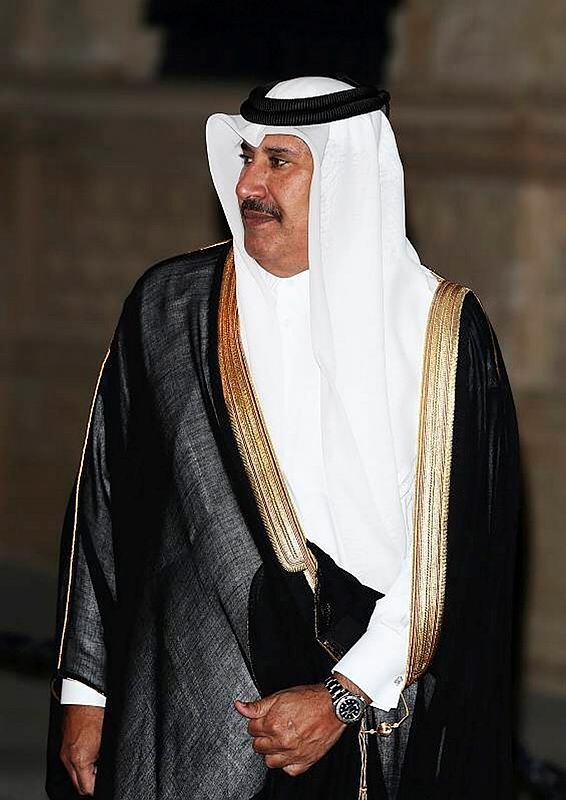The counter-terrorism coalition waged a lengthy, grueling and relentless struggle against the Taliban. Qatar, praised by many as a diplomatic mediator, hosted the Taliban leaders during those bloody days,further cementing the Qatari regime’s reputation as a "double agent."
This duality is nothing new for Qatar. The small but affluent state was a key financier of Islamist radicalization, ostracized by much of the Arab world for its jihadist provocations, yet it positioned itself as a mediator between the U.S. and the Taliban. Secret negotiations between the parties had quietly progressed, inching toward a climactic moment: a summit at Camp David in September 2019, where Taliban leaders, the Afghan government and the U.S. administration were supposed to meet. On one hand, the Taliban were cutting off hands and stoning women; on the other, they were extending a hand to U.S. representatives, all under Qatar’s mediation.
The summit was not to be. Taliban leadership, unable to restrain itself, continued carrying out terror attacks. The Americans, by now, were accustomed to this, but a short time before the summit, a bombing in Kabul killed 11 Afghans. Even that could have been overlooked. The problem was that the attack also claimed the life of one American soldier. The summit was abruptly canceled. "For many Americans," Fox News wrote at the time, "it’s hard to stomach the idea of Taliban members, who had provided refuge to Osama bin Laden, receiving an honorable welcome from the president of the United States."
But that was far from the end. The canceled summit was merely a detour. Qatar brought the parties back to the negotiating table. This wasn’t under Barack Obama, nor Joe Biden — it was Donald Trump at the helm. Negotiations with the Taliban were harshly criticized. The agreement that was eventually signed required the Taliban to cease terrorist activities, sever ties with al-Qaida, refrain from undermining the existing Afghan government, and even preserve women’s rights. But the agreement was hollow.
The ink had barely dried before the Taliban resumed their terror campaign. Trump lost the 2020 election, and the Biden administration went ahead with implementing the agreement, despite repeated violations. The rest, as they say, is history. The U.S. and its collaborators were forced into a chaotic and hasty retreat.
This isn’t Afghanistan, and Hamas isn’t the Taliban. But Trump remains Trump. His logic, at times, is difficult to decipher. Just recently, he delivered a stinging blow to Europe, and Ukraine in particular. And now, he’s suddenly considering imposing tough sanctions on Russia, despite what appeared to be a close alliance with Putin.
So what exactly is going on here? Israel is a democracy, not a war machine. Without the release of hostages, the majority of the Israeli public opposes resuming the fighting. As a result, declining participation rates for reserve call-ups are already raising concerns. Despite what may appear to be erratic decisions or contradictory moves, the common thread in Trump’s approach is a desire to end prolonged, unwinnable wars. He pulled out of Afghanistan because it was clear that years more of entanglement in the quagmire would not improve the situation.
Get the Ynetnews app on your smartphone: Google Play: https://bit.ly/4eJ37pE | Apple App Store: https://bit.ly/3ZL7iNv
After 18 years of war, the world’s most powerful superpower had failed to defeat the Taliban. The same logic applies to the war in Ukraine. It has become a war of attrition. The U.S. has already spent $120 billion directly on it, with no end in sight. Trump, as is his style, breaks the rule s— even if his actions initially seem baffling. But there is a method to the madness. He wants an end to wars with no defined expiration date or tangible outcomes. From Israel’s perspective, we are experiencing a brief moment of respite. Arms shipments have resumed. Statements of support for Israel give Netanyahu some room to maneuver, though it’s unclear whether he knows how to use it effectively.
Yet, despite the apparent zigzags in Trump’s behavior, the same underlying logic emerges. Trump negotiated with the Taliban — why wouldn’t he consider engaging with Hamas? He grants Israel a free hand, but only to achieve the goal. And that goal isn’t another war of attrition that would cost the U.S. billions. The goal is an end to the conflict. Even the idea of transfer (forced population movement), which will likely never materialize, serves as a kind of shock tactic. So does the threat of unleashing "the gates of hell." How? Sanctions? Bombings? These measures are relevant for Iran, not Hamas.
Trump’s only real leverage is Israel, which, with his encouragement, is threatening to renew the fighting. But it’s far from straightforward. Israel is a democracy, not an unthinking war machine. Without the release of the hostages, the majority of the public opposes resuming the fighting. This opposition has already led to a drop in reserve call-up participation rates, which is becoming a growing concern. Nothing has ended. Iran remains in the background, grappling with a severe economic crisis partly due to Trump’s renewed sanctions.
 Ben-Dror YeminiPhoto: Avigail Uzi
Ben-Dror YeminiPhoto: Avigail UziMeanwhile, it continues to meddle, as do the Muslim Brotherhood, with significant influence in Jordan and Egypt, alongside their jihadist counterparts who have taken control of Syria. At present, we are in a window of opportunity, but it’s only a matter of time before Trump surprises us again. During this window, the first priority is securing the release of the hostages, even at a high price. Doing so will not weaken Israel — in fact, it will strengthen it ahead of the next step: resuming the fight to dismantle Hamas.




